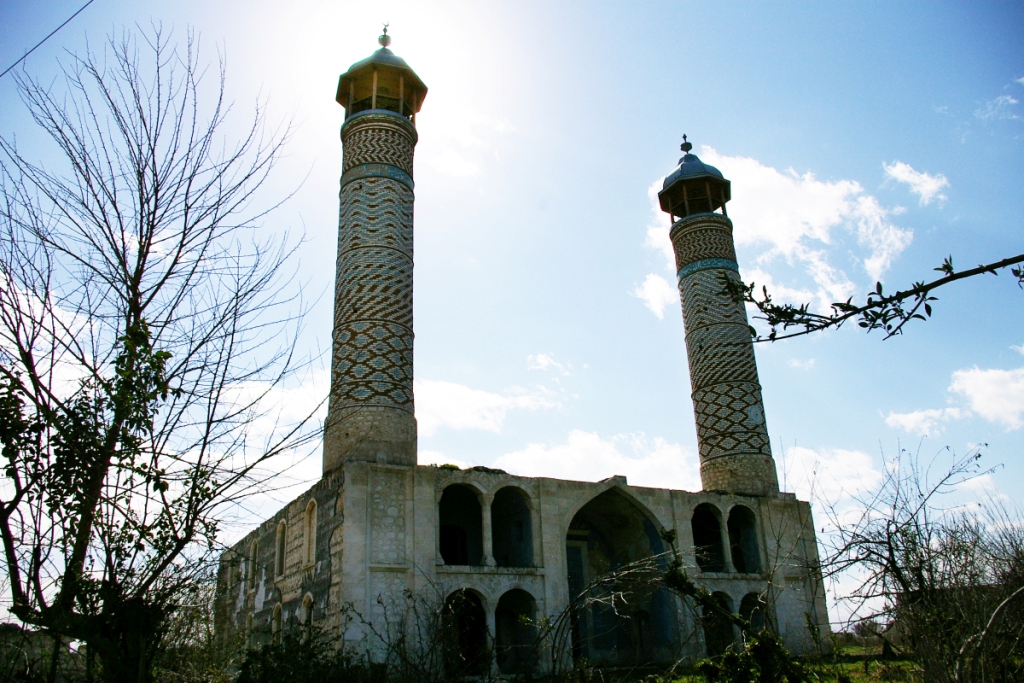Damage from Armenian occupation of Azerbaijani land valued at over $300 bln so far

By Sara Rajabova
The preliminary estimate of the multi-billion-dollar damage caused to Azerbaijan due to the occupation policy of Armenia has been announced.
As a result of research carried out in conjunction with international rating agencies, the inflicted damage was valued at more than $300 billion, and this amount will further increase, head of Azerbaijan's State Committee for Refugees and IDPs, Deputy Prime Minister Ali Hasanov told reporters.
Hasanov pointed out that earlier, the figure was estimated at $60-70 billion.
"However, member of the Milli Majlis Khanhuseyn Kazimly has offered to once again calculate the damage with the aid of international rating organizations. The head of state set up a commission in this regard, and we studied this issue. A series of activities were undertaken, and this process continues," Hasanov said.
Someday, Armenia will have to pay the damage, the Deputy Prime Minister said, but added that the state budget of Armenia makes up only $3 billion and the way it will compensate the damage remains under a big question mark.
"The government of Azerbaijan will submit all of these requirements to international entities. Therefore, Armenia needs to take a constructive approach," Hasanov said.
According to Hasanov, if Armenia does take a constructive approach, the two countries sign a peace treaty and begin the process of a return of Azerbaijanis driven out of their homes during the 1990s war, Azerbaijan might make certain concessions in the payment of indemnity. Otherwise, the government of Azerbaijan will work through international organizations.
As a result of the military aggression of Armenia, over 20,000 Azerbaijanis were killed, 4,866 are reported missing and almost 100,000 were injured, while 50,000 were disabled.
The Armenian aggression has also led to the occupation of 17,000 square meters of the most fertile lands and the destruction of 900 residential districts, 130,939 houses, 2,389 industrial and agricultural facilities, 1,025 educational and 798 healthcare institutions, and 1,510 cultural institutions. Also affected were 5,198 km of highways, 348 bridges, 7,568 km of water pipelines and 76,940 km of electricity lines in the country.
The occupied regions are rich in natural resources. The most widespread minerals are nonferrous metal ores, gold, mercury, chromite, pearlite, lime, marble, agate, mineral waters, etc. The resort and recreation potential of the territory is broad as well.
After the occupation of the Azerbaijani lands the Armenians exploited the natural resources, vandalized the historical and religious monuments and blatantly depleted the indigenous flora and fauna.
As a result of the occupation of a part of Azerbaijani territory, the 132 kilometer-long state border area was left without control. Earlier, Deputy Prime Minister Hasanov said that this area is beyond the control of not only Azerbaijan, but also the UN. He said that for more than 20 years Azerbaijan has been warning about the training of terror groups by Armenia in the occupied territories.
Azerbaijan has repeatedly presented these facts to international organizations, he added.
Besides, he noted recently that the territory of the Armenian-occupied Nagorno-Karabakh region of Azerbaijan is used for the transit of drugs and cultivation of narcotic substances. At present, Armenia uses the occupied territory for transit, as well as production purposes for the transportation of the narcotics to Europe and Asia.
Given the urgency of the problem of control over drug trafficking, intensive work is underway in Azerbaijan to establish a legal basis for combating these types of offences.
Over 20 percent of Azerbaijan's internationally recognized territory, including Nagorno-Karabakh and seven adjacent regions, has been occupied by Armenian armed forces since the lengthy war fought by the two South Caucasus countries in the early 1990s.
The UN Security Council has adopted four resolutions on Armenia's withdrawal from the Azerbaijani territory, but they have not been enforced to this day.
Peace talks brokered by OSCE Minsk Group co-chairs representing
the United States,
Russia and France have been largely fruitless so far.
The negotiations are underway on the basis of a peace outline proposed by the Minsk Group co-chairs and dubbed the Madrid Principles, also known as Basic Principles. The document envisions a return of the territories surrounding Nagorno-Karabakh to Azerbaijani control; determining the final legal status of Nagorno-Karabakh; a corridor linking Armenia to the region; and the right of all internally displaced persons to return home.
Here we are to serve you with news right now. It does not cost much, but worth your attention.
Choose to support open, independent, quality journalism and subscribe on a monthly basis.
By subscribing to our online newspaper, you can have full digital access to all news, analysis, and much more.
You can also follow AzerNEWS on Twitter @AzerNewsAz or Facebook @AzerNewsNewspaper
Thank you!
